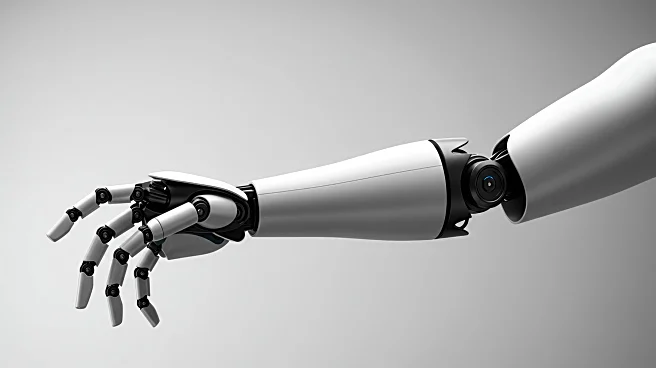What's Happening?
Artificial intelligence (AI) technologies initially developed for behavioral health are now being applied to assess and monitor movement disorders. These technologies, which include computer vision, natural language processing, and acoustic analysis, have shown promise in detecting subtle patterns in patient expressions, speech, and behavior. Recent studies have demonstrated high accuracy in detecting depression using AI-driven assessments. The application of these technologies to movement disorders like Parkinson's disease is logical, given the observable motor symptoms that AI systems can quantify. Advances in computer vision and machine learning have shown promise for early detection of Parkinson's disease, with high accuracy rates reported in recent studies.
Why It's Important?
The cross-application of AI technologies from behavioral health to movement disorders represents a significant advancement in medical assessment. This approach offers pharmaceutical companies and clinical researchers enhanced endpoint measurement, earlier efficacy signals, reduced sample size requirements, and the potential for remote decentralized trials. The ability to continuously monitor movement disorder progression and treatment response through AI systems provides a more detailed longitudinal profile than periodic clinical assessments. This could lead to more efficient drug development, cost reduction, and improved demonstration of treatment efficacy.
What's Next?
The implementation of AI-driven assessments faces challenges such as regulatory uncertainty, data privacy concerns, clinical validation, and health equity issues. The FDA is developing frameworks for AI/ML as medical devices, but the regulatory pathway for novel digital biomarkers remains complex. Ensuring patient privacy and data security is crucial, and new digital biomarkers must be validated against gold standard measures. Access to smartphones and broadband internet varies across demographic groups, potentially creating disparities in who benefits from these technologies.
Beyond the Headlines
The convergence of behavioral health and movement disorder assessment technologies is part of a broader trend toward unified digital biomarker platforms. As AI systems become more sophisticated, further cross-pollination between medical domains is expected. Early adoption of these technologies offers competitive advantages in drug development efficiency and the ability to demonstrate treatment efficacy through novel endpoints. This emerging approach could transform disease assessment and treatment response measurement, positioning companies and researchers at the forefront of therapeutic innovation.









